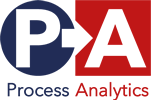Abstract
Healthcare processes are inherently complex as each patient is unique and medical staff deviate from protocols, often for valid reasons. Event logs collected by modern process-aware (healthcare) information systems provide a wealth of data and can be used to analyze the adherence to these protocols. Process mining is a young research area combining data science (machine learning, data mining, etc.) and business process management. Its main contributions have been techniques for process discovery (the automatic learning of process models from event data) and conformance checking (aligning observed and modeled behavior). However, existing techniques face challenging issues discovering high-quality process models in a healthcare setting. In this chapter we introduce the key concepts of process mining such as event logs, process models, and process discovery. We then show the application of two recent process mining techniques on a public event data set from the healthcare domain to demonstrate how some of the common pitfalls can be overcome. A first presented technique projects data statistics on a process model, allowing the analysis of correlations between patient characteristics and the executed activities (e.g., type of treatment). A second technique analyzes process performance without a specific need for a process model by considering contextual information. It correlates process characteristics with process performance.
